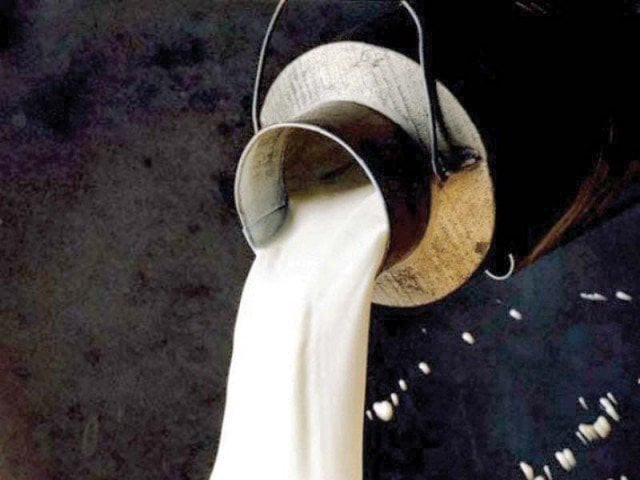Suppliers shifting to pasteurised milk sale amid 2022 deadline
Move follows deadline set by PFA

PHOTO: FILE
The aim is to ensure the provision of uncontaminated milk.
The move comes following a deadline set by the Punjab Food Authority (PFA) that restricts the sale of loose milk by 2022.
In June this year, the provincial food regulator launched a survey to examine the demand for pasteurised milk in different parts of the city. Since then, milk suppliers have set up pasteurisation units.
Responding to a question about the quality of pastuerised milk, Punjab Food Authority Director General Captain (retd) Muhammad Usman said the process of pasteurisation restricts the adulteration of milk.
“The only way to prevent the contamination of milk is through pasteurisation,” he claimed. “It will also help us identify suppliers involved in the adulteration of milk,” the DG added. According to the PFA DG, the price of milk is expected to rise by Rs7 per litre due to the process of pasteurisation. However, the cost of transportation would remain unchanged.
Commenting on the process, M Sarwar, who heads a unit pasteurisation, said the milk undergoes rigorous screening at laboratories before being transported to the plant. “We reject milk if it is below our quality standard,” he said.
Despite resistance from major suppliers, the policy is being adopted across the province and a full transition is expected in the next two years. “I want to protect the future generations by providing them healthy milk,” said one of the suppliers, who claims most sellers in the city are irked by PFA’s decision to promote the sale of pasteurised milk.
Pakistan ranks third in the world with 41.6 million tonnes production of milk every year. Sources in the department of Livestock and Dairy Development reveal millions of litres of milk are wasted due to the absence of processing facilities. To tackle this challenge, a number of processing plants have been established in the last decade.
Published in The Express Tribune, July 3rd, 2019.



















COMMENTS
Comments are moderated and generally will be posted if they are on-topic and not abusive.
For more information, please see our Comments FAQ